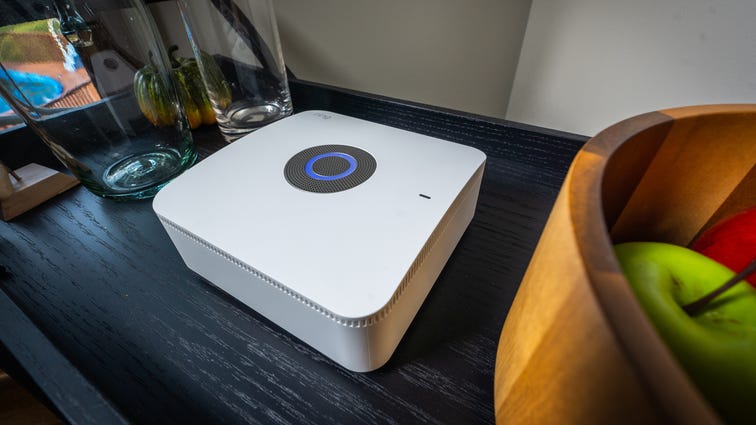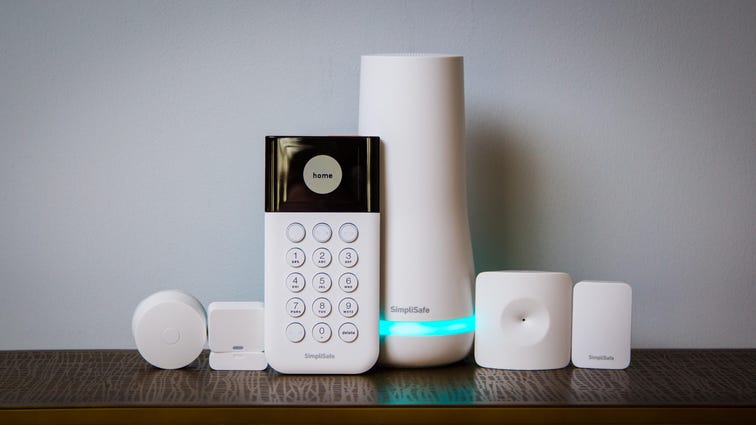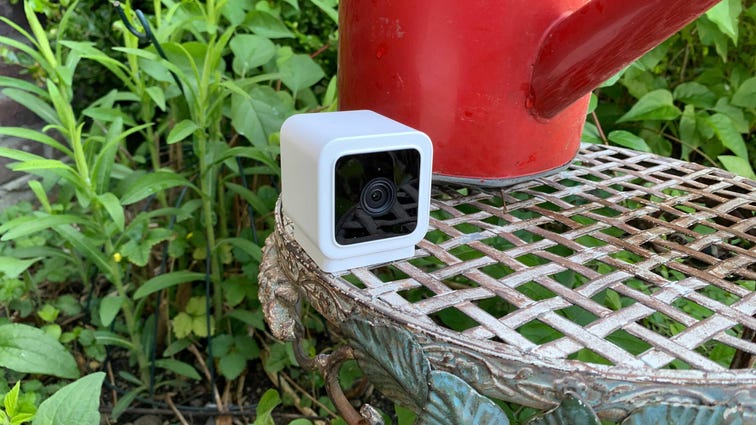DIY home security systems have some major advantages over professional security system companies such as ADT and Vivint. Most importantly, they make home security more affordable. You don’t have to pay thousands of dollars upfront or over the course of a multiyear contract. DIY home security systems cost a few hundred bucks, and you can install them yourself. Plus, you won’t run into hidden fees.
We’ve tested some of the most popular DIY home security options available and rounded up our picks below of the best, including the Ring Alarm Pro.
Want to find out if DIY is right for you? Read our DIY versus professionally installed home security systems comparison here.
Best DIY home security systems

 \n ","topic":"","ttag":"","searchDim":"article-body|listicle|image","variant":"article-body|listicle|image","viewguid":"","event":"listicle|image|1","correlationId":"","_destCat":"https:\/\/www.amazon.com\/Ring-Alarm-Pro-8-piece-kit\/dp\/B08HSTJPM5","productName":"","formatType":"IMAGE","location":"LIST","position":1,"sku":"","dwLinkTag":"article-body|listicle|image","selector":"#article-body #listicle-45b08ff8-8db4-4db9-8efa-954fada4a19d .itemImage"}}” rel=”noopener nofollow” target=”_blank”>
\n ","topic":"","ttag":"","searchDim":"article-body|listicle|image","variant":"article-body|listicle|image","viewguid":"","event":"listicle|image|1","correlationId":"","_destCat":"https:\/\/www.amazon.com\/Ring-Alarm-Pro-8-piece-kit\/dp\/B08HSTJPM5","productName":"","formatType":"IMAGE","location":"LIST","position":1,"sku":"","dwLinkTag":"article-body|listicle|image","selector":"#article-body #listicle-45b08ff8-8db4-4db9-8efa-954fada4a19d .itemImage"}}” rel=”noopener nofollow” target=”_blank”>


Hobie Crase/CNET
The Ring Alarm Pro system has shaken the DIY home security market, wrapping a Wi-Fi 6 Eero router into its base device. That means you get all the basic security you’d expect from, say, SimpliSafe or Abode, but you’ll also get access to all sorts of extra features, including cellular-powered backup Wi-Fi in case of power outages, network security monitoring, local processing and storage for all of your Ring devices and integration with Alexa’s Guard Plus service (provided you have an Echo speaker or display).
Ring still has a troubling history when it comes to its privacy practices and policies, but the Ring Alarm Pro is undeniably one of the smartest DIY home security systems I’ve ever tested, and it’s surprisingly well priced in a crowded market. The base system with four entry sensors, one motion detector, one Z-Wave extender and a keypad costs $300, and you can add other devices a la carte for reasonable prices.

 \n ","topic":"","ttag":"","searchDim":"article-body|listicle|image","variant":"article-body|listicle|image","viewguid":"","event":"listicle|image|2","correlationId":"","_destCat":"https:\/\/www.myfinance.com\/reporting\/redir?utm_source=CNET&utm_campaign=cnet-security-siteside&utm_medium=&redir=https%3A%2F%2Fsimplisafe.com%2Fvalue%3F%26utm_medium%3Dppc%26utm_source%3Dcnet","productName":"SimpliSafe Home Security System (2018)","formatType":"IMAGE","location":"LIST","position":2,"sku":"SS3-01","dwLinkTag":"article-body|listicle|image","selector":"#article-body #listicle-dc378f9d-dfb0-4c05-b92a-30542bd032df .itemImage"}}” rel=”noopener nofollow” target=”_blank”>
\n ","topic":"","ttag":"","searchDim":"article-body|listicle|image","variant":"article-body|listicle|image","viewguid":"","event":"listicle|image|2","correlationId":"","_destCat":"https:\/\/www.myfinance.com\/reporting\/redir?utm_source=CNET&utm_campaign=cnet-security-siteside&utm_medium=&redir=https%3A%2F%2Fsimplisafe.com%2Fvalue%3F%26utm_medium%3Dppc%26utm_source%3Dcnet","productName":"SimpliSafe Home Security System (2018)","formatType":"IMAGE","location":"LIST","position":2,"sku":"SS3-01","dwLinkTag":"article-body|listicle|image","selector":"#article-body #listicle-dc378f9d-dfb0-4c05-b92a-30542bd032df .itemImage"}}” rel=”noopener nofollow” target=”_blank”>


Chris Monroe/CNET
SimpliSafe was one of the first DIY home security system options to hit the market and is a reasonable alternative to ADT and other professional alarm company firms. That’s due in large part to this home security system’s affordable cost and wide variety of accessories. You can regularly find its starter kit for around $200.
SimpliSafe’s impressive array of accessories such as key fob, additional motion sensors, smoke detector, glass break sensor, siren and solid performance for the price make it our favorite DIY home security system — if basic security is all you’re after.

 \n ","topic":"","ttag":"","searchDim":"article-body|listicle|image","variant":"article-body|listicle|image","viewguid":"","event":"listicle|image|3","correlationId":"","_destCat":"https:\/\/www.amazon.com\/Security-Professional-Monitoring-Included-Required\/dp\/B092RL8CHP?th=1","productName":"","formatType":"IMAGE","location":"LIST","position":3,"sku":"","dwLinkTag":"article-body|listicle|image","selector":"#article-body #listicle-f23a3087-e43f-45ff-a0a4-ccff8478a7de .itemImage"}}” rel=”noopener nofollow” target=”_blank”>
\n ","topic":"","ttag":"","searchDim":"article-body|listicle|image","variant":"article-body|listicle|image","viewguid":"","event":"listicle|image|3","correlationId":"","_destCat":"https:\/\/www.amazon.com\/Security-Professional-Monitoring-Included-Required\/dp\/B092RL8CHP?th=1","productName":"","formatType":"IMAGE","location":"LIST","position":3,"sku":"","dwLinkTag":"article-body|listicle|image","selector":"#article-body #listicle-f23a3087-e43f-45ff-a0a4-ccff8478a7de .itemImage"}}” rel=”noopener nofollow” target=”_blank”>


David Priest/CNET
Wyze Home Monitoring is a standout due to its affordable cost. The base kit includes two door/window sensors, a motion detector, a keypad and a base station with a built-in siren — all for around $100 (an increase from the original $50 price tag). Add $10 per month for professional monitoring, or just sign up for a year of professional monitoring ($60) and get the starter kit half-off. From there, you can add cameras for around $30, sensors for under $10 and a slew of other gadgets for ridiculously cheap prices. The only real drawback: Wyze doesn’t have cellular backup in case of power or internet outages.
What other DIY home security systems did we test?
The above systems weren’t the only DIY options we tested. We’ve also tried out Abode Iota, Cove, Lorex, Frontpoint, Kangaroo and Ring Alarm. Iota was a great security system, but it wasn’t able to match Simplisafe’s prices. Frontpoint, meanwhile, offers great hardware at competitive prices, but its monthly $45 monitoring fees are too much. Cove simply struggled to distinguish itself in any significant way.
Budget-friendly options Kangaroo and Ring Alarm couldn’t quite knock out Wyze. Kangaroo nearly matches Wyze’s price, but its hardware — especially its janky doorbell cam — leaves something to be desired. Meanwhile, Ring Alarm, though a great deal all around, is part of a company with a troubling history when it comes to police partnerships. While Ring Alarm is neck-and-neck with Wyze, Wyze comes out on top simply because it’s not carrying all the baggage that Ring is.
Finally, Lorex offers a local network of connected cameras — but it doesn’t offer the integration that smarter systems do for the same price.
Still have questions? Check out this comprehensive guide to all things home security.
DIY home security system FAQs
How do I choose the best DIY home security system?
There are a few considerations to take into account when choosing the right DIY home security system.
Obviously, cost — both upfront for equipment and potential ongoing subscription fees for monitoring or storage — is one of the main factors when choosing a home security setup. Some systems, like the Wyze Home Monitoring System featured above, are available for less than $100. Others can set you back $200 to $300 or more, and the price could inflate even higher with each sensor, camera or alarm you add. Adding another layer of complication to the equation: Many of these systems see significant discounts throughout the year.
Speaking of adding devices, be sure to factor in the number of areas, such as doors and windows, you’ll want to place a camera or sensor when choosing a DIY security kit. Some DIY security systems may come with a base and one or two sensors while others, like the Ring Alarm Pro, come with four sensors, a motion sensor and a range extender.
Higher-priced DIY security systems are likely to come with more devices, plus lots of useful features and compatibility with other smart home devices, which is something else you’ll want to consider when choosing a DIY home security system. The Ring Alarm Pro, our top pick for DIY security systems, features cellular-powered backup, local processing and storage for Ring devices along with easy integration with Alexa Guard Plus service.
Finally, you’ll want to consider local-versus-subscription storage and monitoring options. A DIY Ring system, for example, could offer a number of monitoring and data storage options for an added monthly cost that are not available with other devices. On the other hand, if you’d rather monitor your home security system and handle data storage yourself, many devices allow you to do so at no extra cost.
Is it better to have professional home security service over a DIY version?
A DIY home security system certainly has its advantages, like lower pricing and simple self-installation, but professional security has its perks. While DIY systems are typically easy to install and set up, you won’t have to worry about any of that when a professional system is installed by an experienced technician.
Professional systems are generally more expensive than DIY, but may come with lower upfront costs. It’s possible to get free or discounted equipment and free installation with a professional system, but keep in mind that you may also have to sign a one- or two-year contract.
Signing a contract is unfortunate, but the level of monitoring, support and warranties may be worth it. While DIY systems often come with warranties, monitoring options and technical support on their own, professional services are likely going to deliver a more hassle-free experience — if you’re willing to pay for it.
How much do DIY home security systems cost?
A DIY security system can cost $60 to $400 or more depending on the brand and model you buy and where you purchase it. The Wyze home monitoring system is a great value at $80, for example. On the other end of the spectrum, SimpliSafe’s 10-piece DIY home security system is available for $469 on their website — and those prices can go much higher if you opt for all the bells and whistles the service offers.
Like with any addition or upgrade to your home, you’ll want to evaluate the costs, and what you get for the money, when choosing a DIY security system for your home. It’s easy for the cost of a DIY system to add up, but keep in mind that choosing a cheaper system that doesn’t meet your needs may not be worth your while either.

